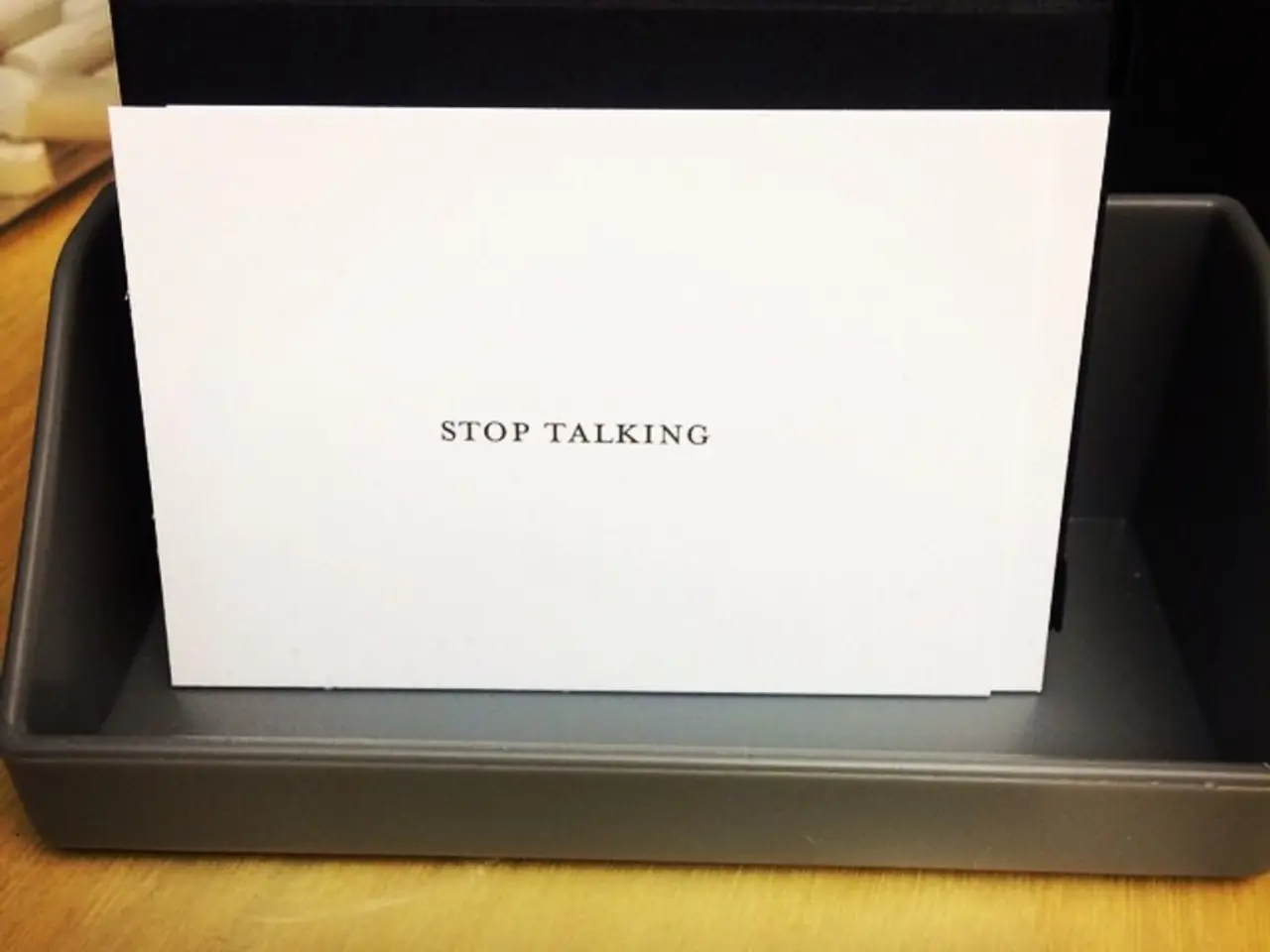Strategies for Managing Anxiety over Potential Job Displacement by AI Technologies
In the rapidly evolving landscape of technology, artificial intelligence (AI) has opened up a world of opportunities for creativity and enhanced productivity. However, this transformative wave has also sparked a sense of unease among a significant portion of the workforce, as many people fear job loss due to a lack of understanding about AI's capabilities and limitations.
The prospect of losing a job to AI can trigger various emotional responses, including anxiety, insecurity, frustration, and even depression. Misinformation or exaggerated portrayals of AI's potential can amplify these anxieties, leading to a climate of fear and uncertainty.
To effectively cope with these fears, it's crucial to embrace proactive coping strategies. Acknowledging and validating emotions is the first step, followed by developing emotional resilience. Continuous learning and upskilling are essential to adapt to the rapid evolution of technology and remain indispensable in an increasingly automated environment.
Organizations can mitigate anxiety by focusing on reskilling or upskilling, especially in areas AI cannot easily replace such as creativity, critical thinking, and interpersonal skills. This should be coupled with a culture of care where leaders actively listen to employee concerns and transparently communicate how AI will be integrated, reducing ambiguity and stress.
Highlighting the benefits of AI, such as automating mundane tasks and freeing time for more complex, creative work, can shift fear towards curiosity and openness. Balancing AI efficiency gains with sustainable work practices that allow for recovery and maintaining human connection helps protect employees’ well-being and engagement.
Individuals should seek opportunities to gain competencies in AI oversight, creative problem-solving, and other emerging roles to convert potential threats into career growth. At the organizational level, ethical AI deployment with attention to fairness, privacy, and human oversight is crucial to maintaining trust and minimizing displacement-related anxiety.
Open discussions about the future of work and involvement in policy dialogues can also provide a sense of agency amid uncertainty. In summary, coping effectively requires proactive personal development coupled with compassionate and transparent leadership that fosters psychological safety and leverages AI to augment rather than replace human work.
The pace at which technology is advancing can create a perception of instability, making people feel unprepared for the future. However, with the right strategies and mindset, we can navigate this change with confidence and resilience, ensuring a bright future for both individuals and organizations.
[1] McKinsey & Company. (2021). Reimagining work in the age of AI: Transforming work through reskilling and upskilling. [2] World Economic Forum. (2020). A human-centered approach to AI: The path to a more equitable and sustainable world. [3] The Brookings Institution. (2021). The future of work: Preparing for automation and AI in the workforce.
- Embracing mindfulness can help individuals manage the anxiety and uncertainty about the impact of artificial intelligence on their careers.
- Depression and anxiety related to job loss due to AI can be reduced by focusing on personal growth and career development through education and self-development.
- Although AI may automate certain tasks in finance and business, the need for emotional intelligence, critical thinking, and creativity in careers remains vital.
- The integration of AI in the workforce can be emotionally challenging, but proper reskilling and upskilling can alleviate these challenges and pave the way for career development.
- The debate about the future of work in the era of AI needs to involve everyone, including those in art, technology, and education-and-self-development sectors, to ensure a fair and equitable future for all.
- Understanding the limitations of artificial intelligence and the importance of human oversight in AI deployment is paramount for maintaining mental health and well-being in the increasingly automated business environment.
- Mental health should be a priority in the business world, with leaders implementing compassionate and transparent communication about AI integration to foster psychological safety and reduce anxiety.
- As AI continues to advance, it's crucial to stay updated on its developments and the potential impact on jobs, ensuring that we are prepared for the changes and can capitalize on opportunities for growth.
- Seeking resources from reputable sources such as McKinsey & Company, World Economic Forum, and The Brookings Institution can provide valuable insights into navigating the world of work during the AI revolution and promoting a brighter future for individuals and organizations.




